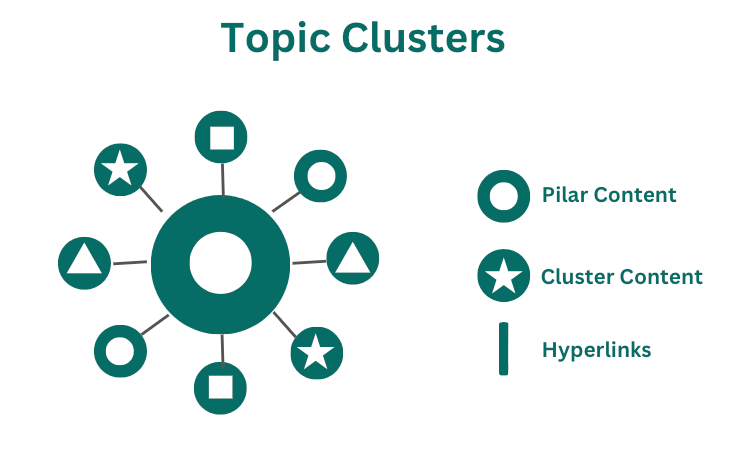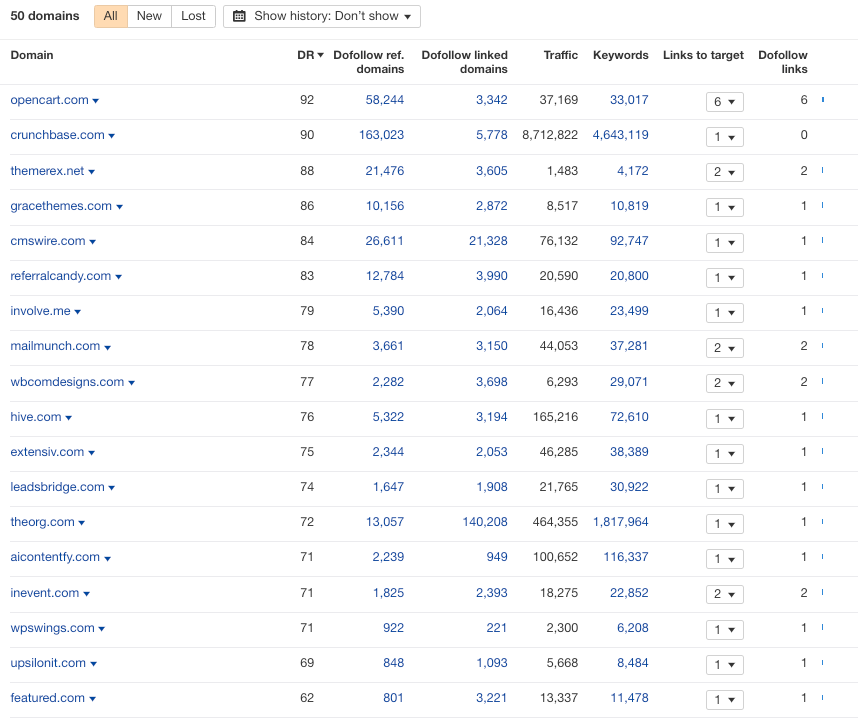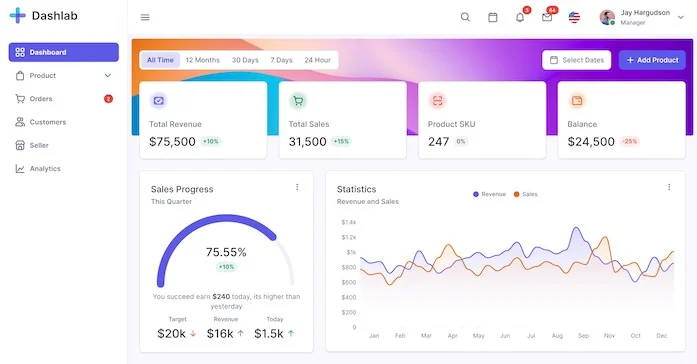If you are serious about dominating search engine rankings, then you can’t afford to overlook topical authority.
You’ve probably heard chatter about it, and let me tell you, it’s no joke — topical authority can be your golden ticket to securing one of the top spots in SERPs. In a nutshell, it requires you to cover a certain subject in-depth and showcase your expertise, so you can position yourself as the go-to source for that particular topic.
In this blog, we’ll dig deeper into the nitty-gritty of topical authority, including the factors that influence it, and how you can build it from the ground up.
Table of Contents:
- What is topical authority?
- Importance of topical authority to your website rankings
- How topical authority works?
- Understanding topical authority further
- Significance of content relevance, depth, and quality
- Factors influencing topical authority
- How to build topical authority to boost your SEO efforts
- Final thoughts on building topical authority
What is topical authority?
Topical authority is the level of expertise and credibility your website has on a particular topic or subject. It’s a measure of how well your website covers a specific subject matter and how relevant it is to users searching for information on that topic.
Think of it like this: If you want to get in shape, would you seek advice from an amateur? Of course not! You’d want to learn from an expert coach who has the experience and passion to guide you toward success. This way, you can get the most value out of your time and money, and be assured of the best possible results.
Today, it’s no different. In order to be seen as credible and establish yourself as the go-to business in your niche or industry, you need to demonstrate a high level of topical authority.
Importance of topical authority to your website rankings
Having a high topical authority not only earns the trust of users but also of search engines themselves. So, if you’re truly serious about your website rankings (and I suppose you are!), then you need to bring your site’s topical authority up a notch.
Search engines constantly update their algorithms to provide better and more personalized results to users, and one of those updates is prioritizing websites that demonstrate experience, expertise, authority, and trustworthiness (E-E-A-T).
This means that having a website that possesses all these qualities can give you a competitive edge as you are likely to be rewarded with higher rankings on SERPs.
And you know what comes with high website rankings – more traffic, more visibility, and ultimately, revenue for your business!
How topical authority works?
Search engines have a complex algorithm for crawling and analyzing pages on the internet to determine their topical relevance and quality. When someone types a query into a search engine, the engine uses its algorithms to match the query with the most relevant, authoritative, and trustworthy web pages based on the topic and keywords in the query.
With that said, in order to get picked by the algorithm and earn a top spot on search results, your website needs to showcase your expertise through high-quality, informative, and valuable content.
Of course, achieving high topical authority involves many other factors (and we’ll get into that later). However, the first and most crucial step is to create and share content that your audience will find interesting and useful.
Understanding topical authority further

1. What is a topic cluster?
A topic cluster is a group of interlinked web pages that cover different aspects of a broad topic. It’s composed of pillar content and cluster content.
The pillar content, also considered the central page in the cluster, provides a broader overview of the topic. On the other hand, cluster content provides answers to more specific subtopics or questions related to the main topic, ensuring that your audience finds the information they need in a more detailed manner.
To give you a better understanding of topic clusters, let’s say you run a website dedicated to men’s fashion. Here’s how your topic clustering may be structured:
| Pillar content | Cluster content |
| Topic cluster # 1 | |
| Men’s clothing essentials | Men’s shirts (styles, fabric options)Men’s pants (types, pant fits)Men’s outerwear (jackets, coats, sweaters)Men’s accessories (ties, belts, hat, socks, watches) |
| Topic cluster # 2 | |
| Men’s style and fashion tips | Dressing for different occasions (formal, business, smart casual)Color coordination and matching (color theory, complementary shades)Fashion trends for men (current trends, seasonal style, celebrity inspiration)Capsule wardrobe (mix-and-match outfits, versatile pieces) |
| Topic cluster # 3 | |
| Men’s clothing care and maintenance | Washing and laundering (tips for washing different fabrics, proper drying techniques)Ironing and pressing (ironing guides, steaming tips)Stain removal (product recommendations, stain removal tips)Closet organization (wardrobe storage ideas, closet cleaning and decluttering) |
Of course, depending on your keyword research and overall content strategy, you can add more topic clusters and cover a wider range of topics that your audience may be interested in. This allows you to provide valuable information and engage your audience consistently.
2. How is topic clustering important in creating topical authority?
If you take a closer look, you’ll see that topic clusters are not only beneficial for you but also for your audience and search engines like Google and Bing. They make it easier for you to structure your topics in a way that’s easy to follow and understand.
When you organize your content into topic clusters, you’re sending a clear signal to search engines that your website has a thorough and comprehensive understanding of a specific topic. It showcases your expertise and positions you as a trusted authority in that subject area.
As a result, in the eyes of search engines, you gain topical authority.
Significance of content relevance, depth, and quality
Content creation is at the heart of building topical authority. Without it, how then will you be able to demonstrate your expertise on a topic?
It’s all about creating content that delivers the best value for the time your audience invests in reading or consuming it.
When it comes to relevance, your content should align with the focus of your blog or website. It should address the questions and needs of your audience, creating meaningful engagement for them.
In terms of depth, your content should go beyond surface-level information. It should provide the necessary resources on the topic, such as analysis, statistics, expert opinions, tips, and so on.
Lastly, quality is key. Your content should be well-written, properly structured, and easily understood by your audience, making sure to get rid of grammatical errors and typos. Creating excellent content also requires ensuring information is factually accurate and incorporating a variety of multimedia elements, like images, videos, and so on.
It can be tempting to prioritize publishing lots of content, but remember that doing so without any regard for quality can lead to penalties from search engines. After all, no one benefits from low-quality content, right?
Factors influencing topical authority
1. Website’s experience, expertise, authority, and trustworthiness (E-E-A-T)
First and foremost, your web content must demonstrate E-E-A-T, which is actually one of Google’s guidelines for assessing the quality of content on a website.
In terms of expertise, it’s important to make sure that the content author has the necessary experience, qualifications, and credentials to speak confidently on the topic.
When it comes to authority, you should consider how you are perceived by experts and authorities in your industry or niche. If you frequently find yourself getting referrals (such as through backlinks) from them, it most likely means that they recognize you as an expert and a reliable source of information, which establishes your authority in the industry.
Trust is all about the level of reliability associated with your content, which can be nurtured in ways like incorporating resources from other reliable sources and providing proper citations of those sources in your content. However, trustworthiness can go beyond just the content alone, and can also encompass technical aspects, such as your website security.
2. Backlinks and their topical relevance
Backlinks are links found on other authoritative websites that point users back to your webpage. When high-quality, reputable websites make a referral to your site, it signals their trust in you as a reliable and credible source of information.
So, does having lots of backlinks from authoritative websites automatically translate to having high topical authority? Well, not exactly… unless those websites that link back to you are actually topically relevant.
This means that not all backlinks are created equal. A backlink from a high-authority site within the same niche as your website will have a greater impact on your topical authority than a link from a site with no or little relevance to your topic.
Let’s go back to our previous example of running a men’s fashion website. In this case, getting backlinks from a renowned men’s fashion magazine or a hair-care website would greatly benefit your topical authority.
On the other hand, a backlink from a gardening website, which has no connection whatsoever to your topic or webpage, would have no significance in terms of building your topical authority. In fact, it could be seen as a spammy link by search engines, leading to penalties that can negatively impact your website.
3. Social media presence and participation

Social media is more than just a place for memes and adorable cat videos. It offers a great opportunity for you to engage with your audience in ways like answering their questions and participating in discussions, as well as showcase your expertise and authority in your field.
By doing so, you not only increase the visibility of your website and raise brand awareness, but you also open doors to gaining attention, backlinks, and potential guest-posting opportunities from reputable finance-related blogs, publications, and industry experts.
For instance, let’s say you run a website that focuses on personal finance and management. You can hop on social media platforms like Twitter, LinkedIn, or Reddit, and participate in financial discussions, share infographics and resources, and provide your expert insights on money-related topics.
Therefore, backlink building and utilizing social media are not mutually exclusive; in fact, they work hand in hand to enhance your topical authority.
4. Signals of user engagement

Signals of user engagement are indicators that can give you an idea if a website’s content is valuable and engaging for users, which can point to how authoritative the website is. These can include metrics like time spent on site, bounce rates, pages per session, and social media shares.
Naturally, it makes sense that search engines perceive a site with high user engagement as valuable to its audience. This perception enhances the website’s topical authority.
When it comes to this particular influencing factor, there are more aspects to consider beyond the page’s content structure and quality. This includes aspects like user–friendliness, responsiveness, page loading speed, and other technical elements.
How to build topical authority to boost your SEO efforts
1. Conduct thorough keyword research
Keyword research is a key part of any successful SEO strategy. It’s important to find keywords and phrases that are relevant to your industry or topics your target audience is discussing.
To make your keyword research easier, you can take advantage of popular SEO tools such as Google Keyword Planner, Ahrefs, SEMrush, and more. These tools can help you identify keywords with a good search volume and relatively moderate competition, increasing your chances of ranking higher in search results.
Don’t forget to tap into the power of social media platforms where people are actively engaged. This is a great way to get a hold of what your audience is currently interested in.
Additionally, you would also want to take a look at the People Also Asked (PAA) section in SERPs, which can give you insights into the related questions people have when searching for a particular query.
Lastly, one thing that would help you in this area is by keeping up with the latest trends related to the topics your audience is interested in or passionate about. You can do this by subscribing to industry newsletters, relevant blogs, and engaging in various online communities where discussions revolve around your niche.
2. Create a detailed content strategy
Now that you’ve got your target keywords sorted, it’s time to develop a comprehensive content strategy. You will need to outline the different types of content you’ll create, for example, blog posts, articles, videos, or infographics, making sure to weave those target keywords and topics throughout your content.
When doing so, one crucial thing to keep in mind is to avoid any keyword or topic from overlapping or repeating in your content. Your keywords must be batched appropriately and assigned to a unique piece of content, so you can steer clear of keyword cannibalization or topic cannibalization.
It’s also important to consider user intent when shaping your content. Ask yourself whether the content should be informative, providing valuable insights, or promotional, showcasing your products or services. You can gain some insights by taking a look at the top-ranking websites on SERPS or utilizing the SEO tools we mentioned earlier.
In addition, it’s essential to establish a consistent publishing schedule. Determine the best time to release your content and the platforms where you’ll share it. Think about clever ways to repurpose your content, giving it new life and reaching a wider audience.
3. Create topic clusters

As mentioned earlier, topic clusters provide a powerful framework for structuring and organizing your content that’s easy to follow for your audience and the search engine. Doing so demonstrates to search engines that you have a comprehensive understanding of the subject matter you’re addressing.
Also, keep in mind that topic clustering is not just about organizing content, but also about internal linking. Internal linking means linking to other pages within your own website, which is not only helpful for your readers, but also helps search engines crawl your pages more easily.
Here, you must figure out the best way to go with your internal linking. You want to make sure that you’re linking to relevant pages and using anchor text that accurately reflects the content of the page you’re linking to.
4. Write high-quality, well-researched content
Quality is paramount when it comes to building topical authority. Remember Google’s E-E-A-T guidelines: experience, expertise, authoritativeness, trustworthiness.
Conduct thorough research, explore different sources, and gather reliable information to back up your claims. Remember, facts and figures make your content more credible and trustworthy.
Don’t forget to cite your sources.
Create content with readability in mind. Break it down into sections using headings and subheadings and use bullet points to highlight key points. Keep your paragraphs concise and to the point.
Add multimedia elements to put some life to your content. Include relevant images that complement your text, as well as videos or infographics to encourage engagement.
Double-check your work for accuracy, and rectify any typographical or grammatical errors, like polishing a shoe and making it shine.
Lastly, take opportunities to bring something fresh and unique to the table. Think outside of the box and create something new, because who knows, it may pave the way for uncovering groundbreaking ideas.
5. Optimize your content with relevant keywords
Make sure that you incorporate the appropriate keywords into your content, allowing search engines to understand your content better and connect it to relevant search queries. This involves incorporating keywords into the page title, headings, site title, meta description, and image alt text.
When doing so, remember to weave the keywords naturally so as to maintain a natural flow of the content and avoid sounding spammy.
Remember also to keep your content up to date by replacing outdated information with fresh and relevant updates. This could include updating the year from 2021 to 2022 for example, reflecting changes in laws or regulations, replacing outdated statistics and research, and so on.
6. Build high-quality backlinks
As discussed earlier, the quality of backlinks you have speaks volumes about your topical authority. When other relevant and authoritative websites create links back to your site, it shows their confidence in your content and establishes your authority in the field.
One approach you can adopt is to manually reach out to website owners, influencers, or industry experts and ask them to consider linking to your content if they find it valuable.
Alternatively, you can engage in guest blogging opportunities on relevant websites, which allows you to demonstrate your knowledge of the subject matter, gain exposure, and earn valuable backlinks to your site.

7. Share content with your audience
After crafting excellent content, it’s time to share it and get them in front of your audience using different channels. You’ve got plenty of options like social media platforms, email newsletters, and online communities where you can share and promote your content.
But don’t stop there — make an effort to interact and spark conversations with your audience, for example, asking for their feedback or their thoughts on the topic. The more your content resonates with your audience and gets shared, the more attention it will attract.
And remember our earlier discussion about how search engines view social media shares as positive indicators of user engagement? Well, that’s not all — when your content catches the eye of other industry players, you might even get potential backlinks from them.
Final thoughts on building topical authority
Building topical authority is a journey that requires consistent effort to establish yourself as an expert in your field and earn the trust of your audience.
While topical authority is not the sole factor in SEO, it plays a significant role. You’ll be surprised to see websites with low domain ratings ranking high in Google simply because they have strong topical authority.
The key is to consistently create high-quality content that is informative and valuable. On top of that, stay updated with the latest trends and adapt accordingly, ensuring that your content and user experience are always top-notch.






